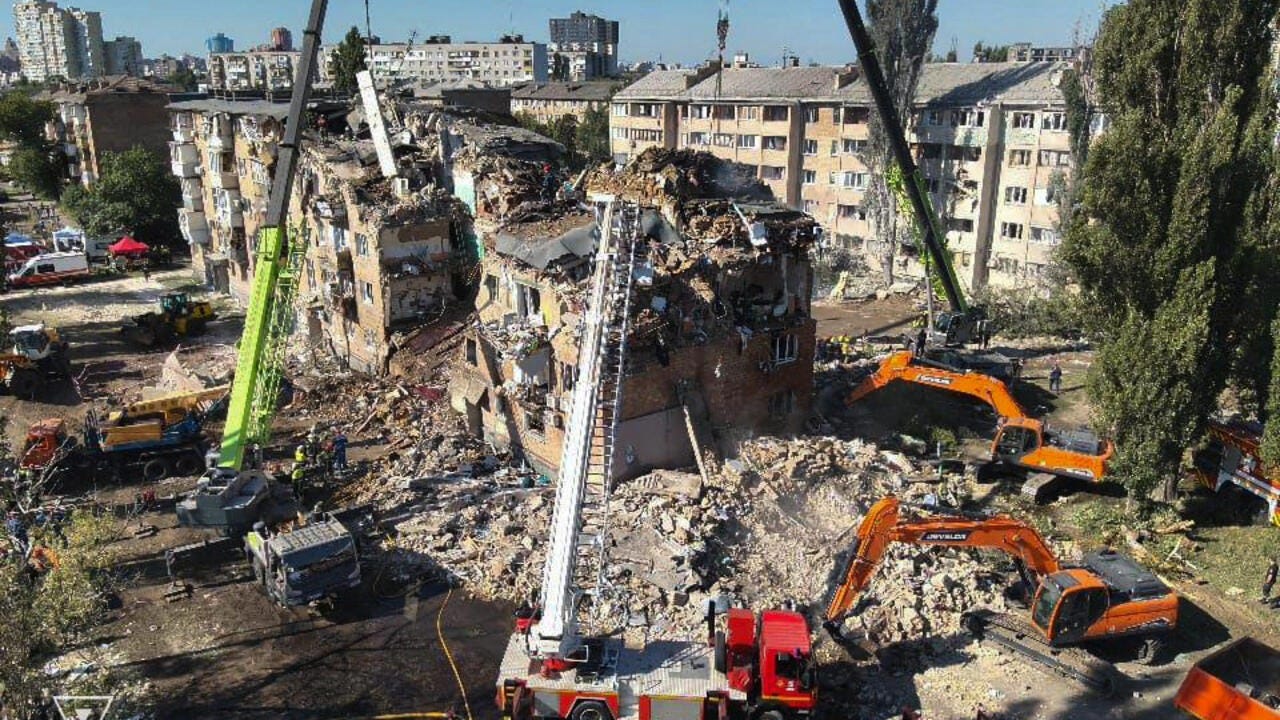Kyiv Under Fire, Diplomacy at Risk
Russia's deadly barrage on Kyiv killed 18 and hit EU-linked sites, as Moscow hardened demands: no NATO, Zelenskyy "illegitimate." With Europe's public shifting toward concessions, winter energy strikes loom. Diplomacy stalls while Russia buys time and grinds forward.
What happened?
Russia launched one of its deadliest mixed missile-and-drone barrages on Kyiv, killing at least 18 people (including four children) and damaging buildings housing the EU mission and the British Council, as rescuers pulled bodies from a collapsed residential block on the city's left bank. Zelenskyy called the assault "Moscow's answer" to peace efforts. The UK and the EU condemned the strike and summoned senior Russian diplomats over the damage to European institutions. The attack followed a wider campaign hitting energy and gas-transport infrastructure across six regions, leaving more than 100k without power. At the same time, Russia signaled hard negotiating lines: Lavrov outlined "big-power" security guarantees for Ukraine with no NATO presence and questioned Zelenskyy's legitimacy as a negotiating partner.

Why does this matter?
Escalation over engagement: Striking EU-linked sites while diplomacy stalls suggests that Moscow prioritizes battlefield leverage over negotiations. By casting Zelenskyy as illegitimate and demanding "no NATO," Moscow narrows the path for any enforceable security deal.
Winter energy risk: Fresh attacks on the electricity grid and gas facilities foreshadow a winter campaign to degrade Ukraine's economy and morale, amplifying humanitarian and macro risks.
Western patience tested: A new poll shows that 52% of Germans would accept Ukraine ceding occupied territory for peace—an attitude shift that could soften Europe's bargaining stance.
What's next?
Expect further Russian targeting of transformers, substations, and gas transport nodes as temperatures fall. Rolling outages are likely if the attack tempo persists. Diplomatic prospects remain fragile. Moscow says that any meeting between leaders must be "thoroughly prepared," demands guarantees that NATO troops will be excluded, and continues to question Zelenskyy's mandate. These positions impede the design process for security assurances. European capitals will attempt to provide additional air defense while monitoring whether public opinion drifts further toward territorial concessions.
finformant view
Portraying Zelenskyy as illegitimate allows Moscow to shift the blame if talks fail. Meanwhile, a shift in public opinion in Europe further erodes Kyiv's leverage. Economically, a winter grid war will sap Ukraine's output and morale. Ukraine's withdrawal from the Donbas region would mean surrendering its most fortified and hard-won defenses. This would give Moscow what it has struggled to achieve militarily through diplomacy. Even worse, once those positions are vacated, Russia could easily provoke a new escalation, advance deep into Ukraine in a renewed blitz, and reclaim the very territories supposedly "traded for peace."



